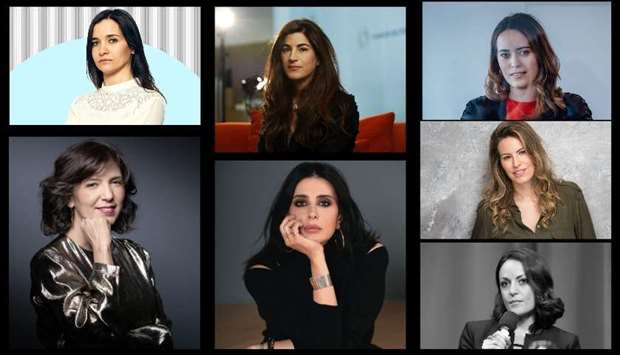At the inaugural ceremony in 1929 of the Academy Awards, the best director nominees for the Academy Award of Merit were all male. Lina Wertmüller was the first female director to be nominated, 48 years later.
The Oscars have a long history of being called out for a lack of diversity. However, for over a decade now — this concern of inclusivity has been taken seriously by the organisers especially in times when the number of women working both behind and in front of the camera has reached historic highs.
This was another high year as Academy Awards' nomination included two female Arab filmmakers, Tunisia's Kaouther Ben Hania who competed with The Man Who Sold His Skin in the international feature film category, and The Present, by Palestinian-British director Farah Nabulsi, in best live-action short film.
There are seven women filmmakers from the Arab world who have received an Oscar nod to date. Looking back at the long journey of Oscars and the Academy giving a platform to Arab female filmmakers for their piece of work to reach out millions around the world:
Jehane Noujaim:
The Square by Jehane Noujaim was nominated in 2014 in Best Documentary Feature category. It was an Egyptian-American documentary depicting the Egyptian Crisis, beginning with the Revolution in 2011 at Tahrir Square.
Sara Ishaq:
Karama Has No Walls by Sara Ishaq, Scottish-Yemeni filmmaker, bagged the nomination for Best Documentary Short in 2014. Set amidst Yemen’s 2011 uprising, the documentary illustrates the nature of the Yemeni revolution in stark contrast to the gross violations of human rights that took place on March 18, 2011.
Nadine Labaki:
Capernaum by Nadine Labaki (from Lebanon), supported by Doha Film Institute, was nominated for Best Foreign Language Film in 2019. The film followed a heartbreaking story about a 12-year-old boy named Zain who leaves home in search of a better life but ends up serving a five-year sentence for a violent crime, during which he decides to sue his parents for neglect.
Waad Al-Kateab
For Sama by Waad Al-Kateab and Edward Watts was nominated for Best Documentary Feature at the 92nd Academy Awards 2020 after bagging four nominations at BAFTAs at the 73rd British Academy Film Awards, winning for Best Documentary. The film follows Waad al-Kateab's life through five years in Aleppo, Syria before and during The Battle of Aleppo.
Meryam Joobeur:
Brotherhood by Tunisian-Canadian filmmaker Meryam Joobeur, and supported by Doha Film Institute, bagged a nomination at the 92nd Academy Awards 2020 for the Best Live Action Short Film. The film explores the tensions within a Tunisian family when a man who has been away for several years returns home with a new Syrian wife who wears the full niqab, igniting his father’s suspicions that his son has been working for the Islamic State of Iraq and the Levant.
Kaouther Ben Hania:
Ben Hania’s critically-acclaimed feature, The Man Who Sold His Skin, got shortlisted for the Best International Feature Film category at the 93rd Academy Awards, Oscars 2021. The film was shortlisted among 14 other films including The Mole Agent, directed by Chilean Maite Alberdi, Charlatan, a Czech biographical drama directed by Agnieszka Holland and Danish director Thomas Vinterberg’s Another Round. The Man Who Sold His Skin tells the story of a Syrian refugee who allows his body to be turned into a work of art. Starring Yahya Mahayni, the film is a look at the struggle refugees face with borders and residency permits.
Farah Nabulsi:
The Present by Farah Nabulsi, supported by Doha Film Institute, got nomination in the Live Action Short category at the 93rd Academy Awards, Oscars 2021, after bagging BAFTA Award for Best British Short Film, making Nabulsi the first Palestinian Arab female filmmaker to get an Academy nomination. This has been the 10th Oscar nomination in the past seven consecutive years for projects funded by DFI. The film follows a Palestinian father as he sets out from the West Bank with his daughter, to buy a wedding anniversary gift for his wife. As the 24-minute film progresses, audiences witness the struggle of Palestinians to complete a simple task like shopping, as they encounter checkpoints, soldiers, and the reality of life under occupation.

